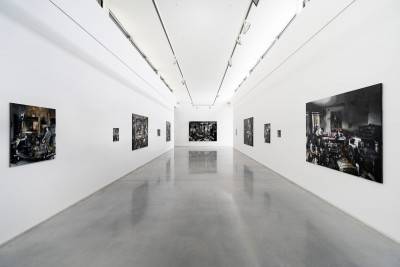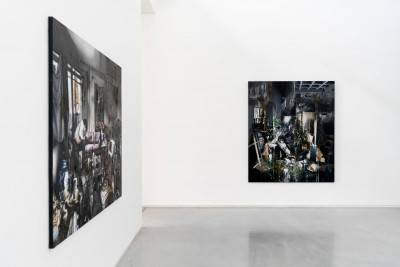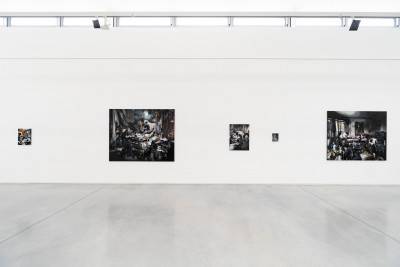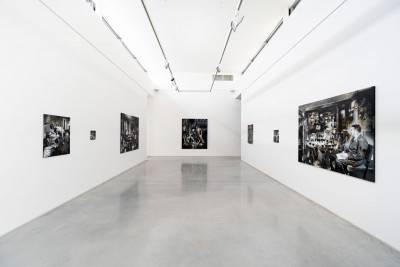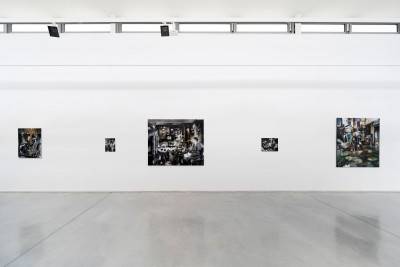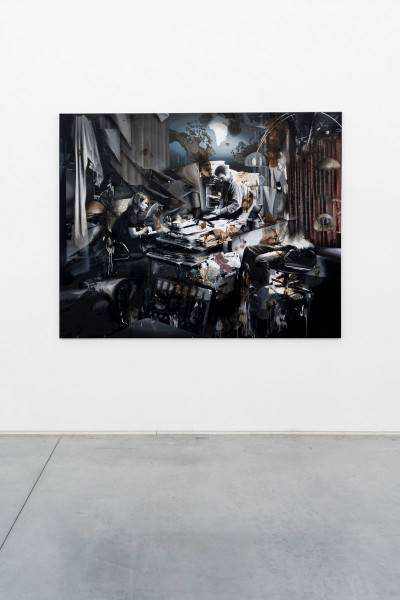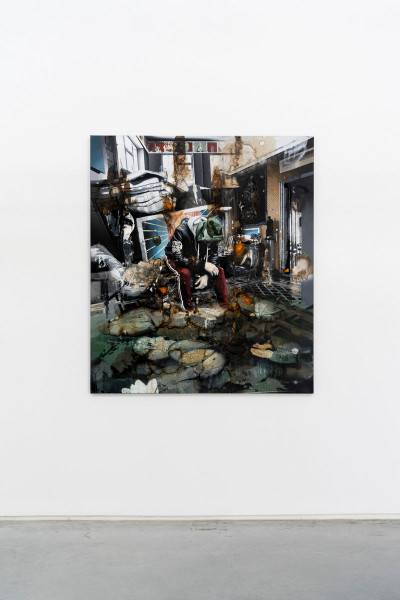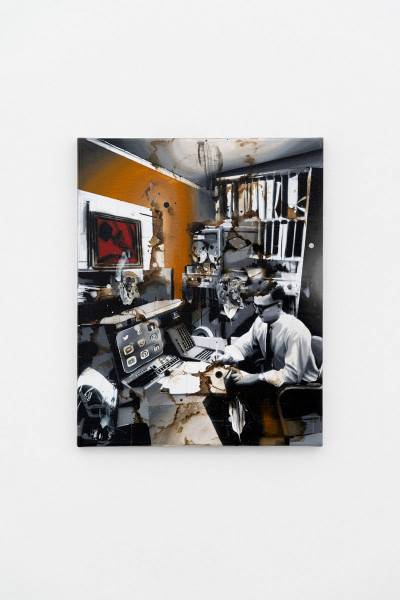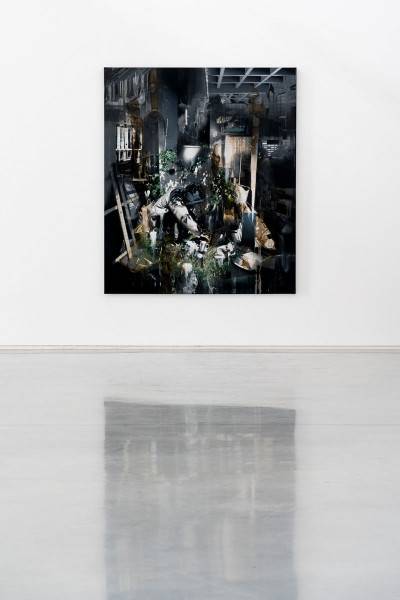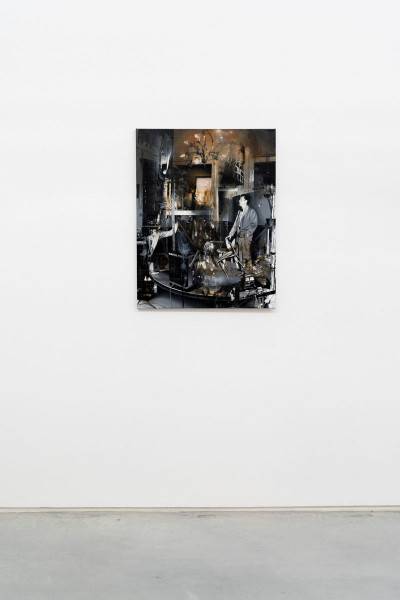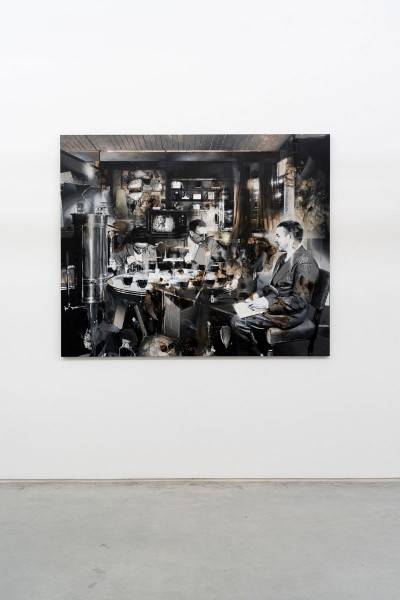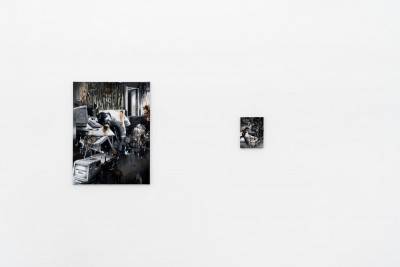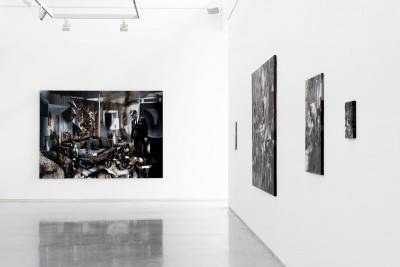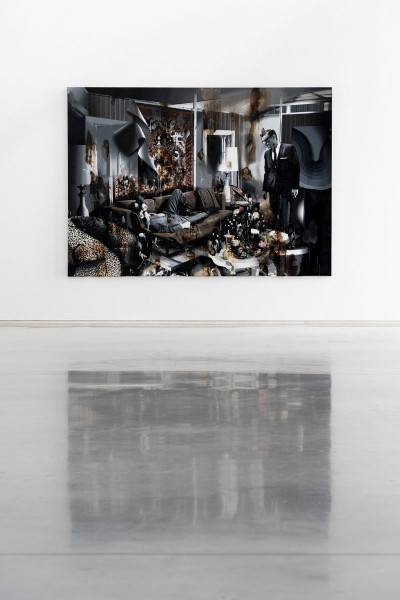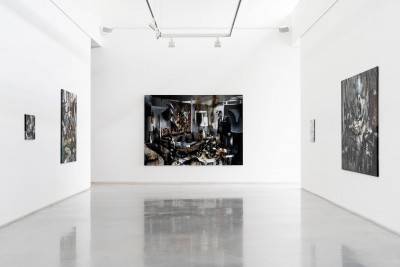

Since 2013, Michal Mráz has been defining himself as a distinctive painter of the melancholy with elements of hybrid poetics and critical social subtexts. The starting point of his work can be found in the positions of street art resistance. He sophisticatedly captured the critical charge embedded in the raw protest and elaborated it into a new form of a rich and diverse pictorial constitution. The speed and adrenaline of street art activities were then replaced by focused work in the studio. The image was transformed into a subversive matrix of time-lapse compression in which plot layers overlap and permeate in a hallucinogenic way.
Mráz unfolds the entire illusory space of the painting from the very beginning and deliberately shows it as an artificially arranged, content-rich situation. All of the elements of the composition, including the figures, are borrowed from the reproduced world of forms. To underline this level of distance in his work, Mráz chooses retro sources representing a “long-dead” lifestyle. The references to transience, waste, and vanitas create an illusory narrative. Here we delve into temporally remote nooks, crannies and labyrinths of the newly arranged past which refers to the loss of something essential. The human experience is shaken and loses its binding contours. The past is transformed into a melting mirror reflection of hidden events and their pseudo-engineers. In a painterly way he touches on a fundamental topic of the present, which is the issue of distorted representation, misinformation, fake news, conspiracy theories, but also the disconnect between the inner and outer worlds of experience. Despite the visuality of the past, Mráz achieves an insistent feeling of the present.
The exhibition entitled TERÁRIUM / TERRARIUM refers to the limited space of human freedom. The distant view of the artist follows the reverse side of the retouched world of dreams and needs which define the fragile boundaries of civilization. He breaks down the canon of consumer happiness and reveals its dark backstage and undercurrents.
Petr Vaňous

